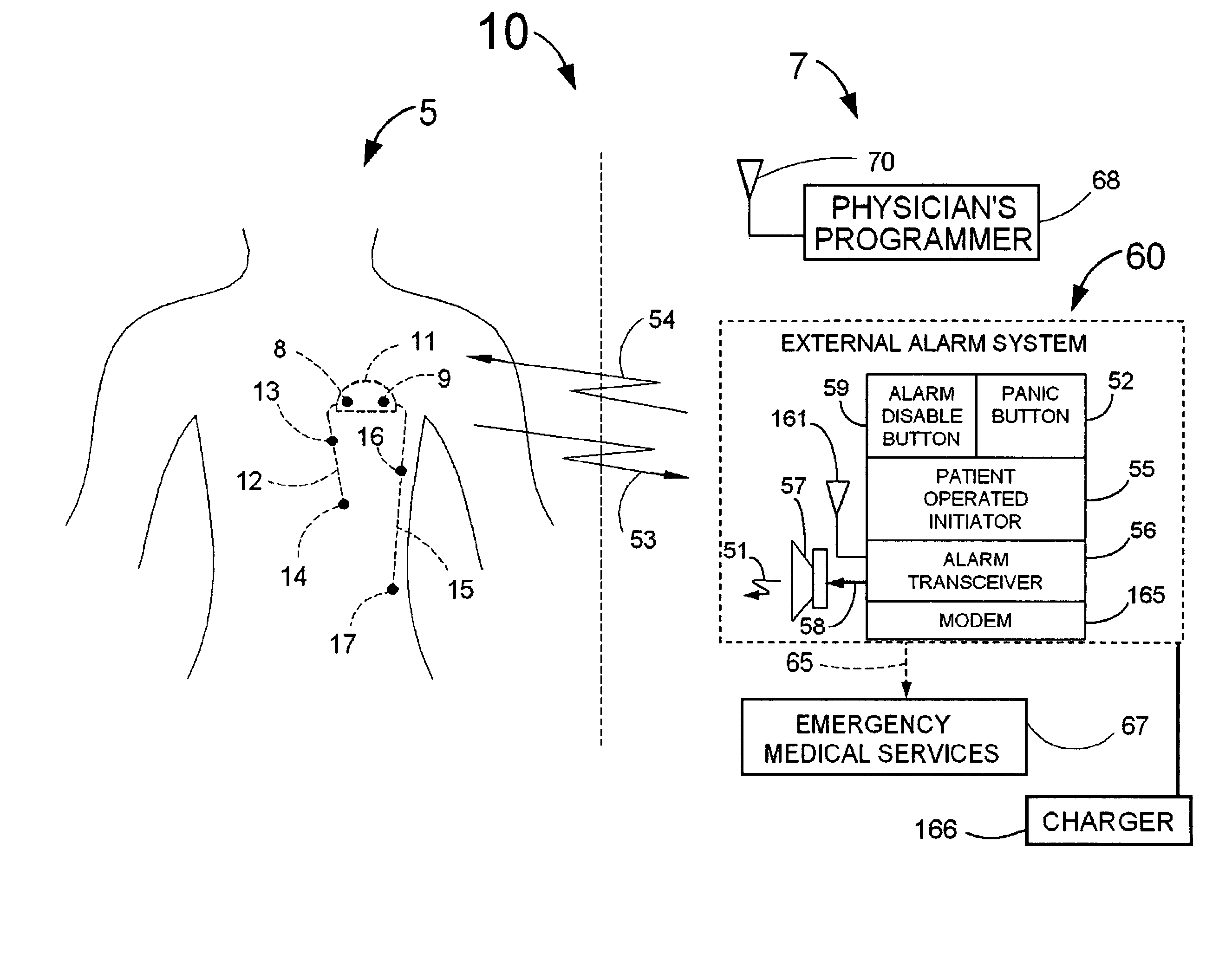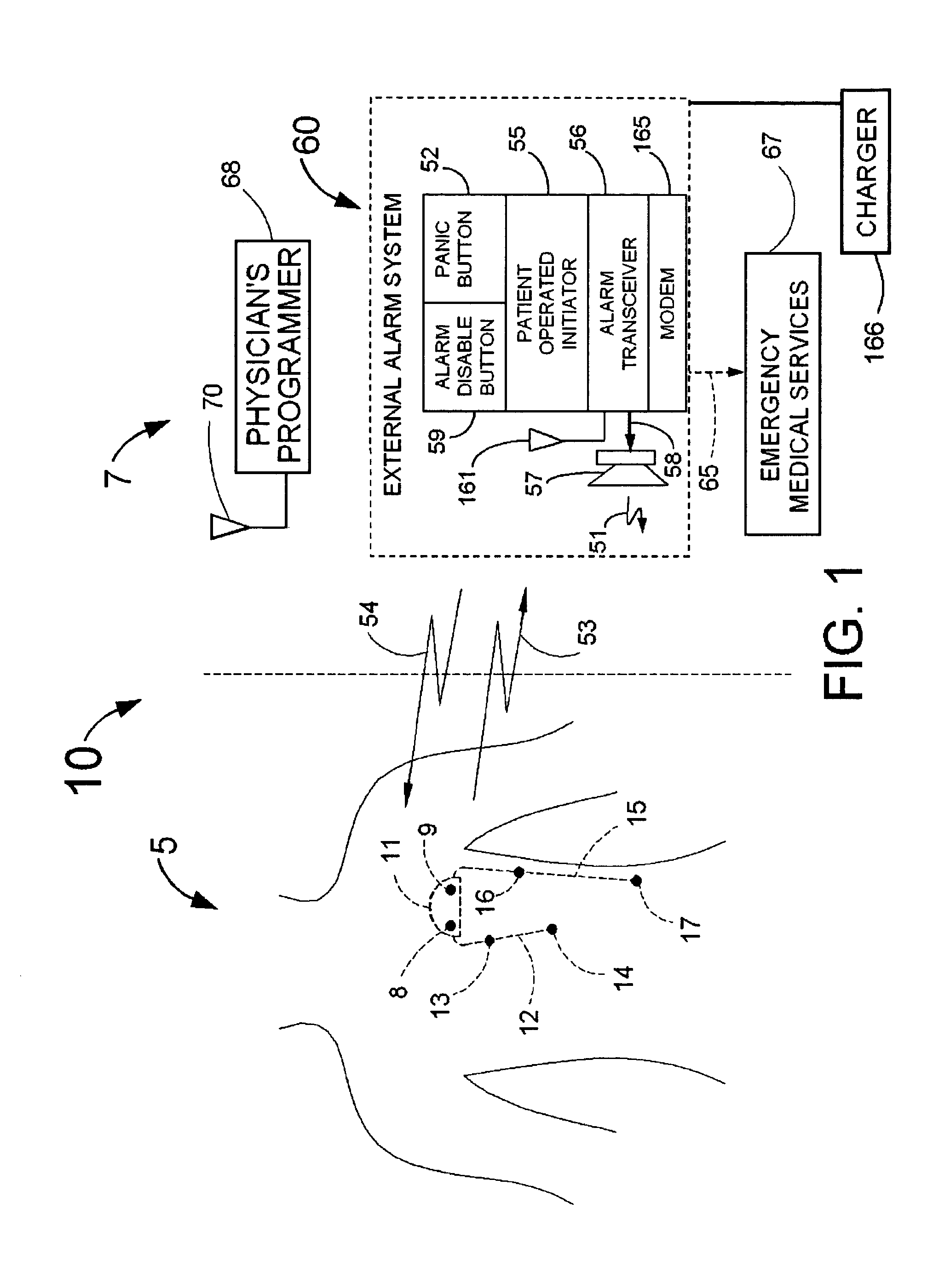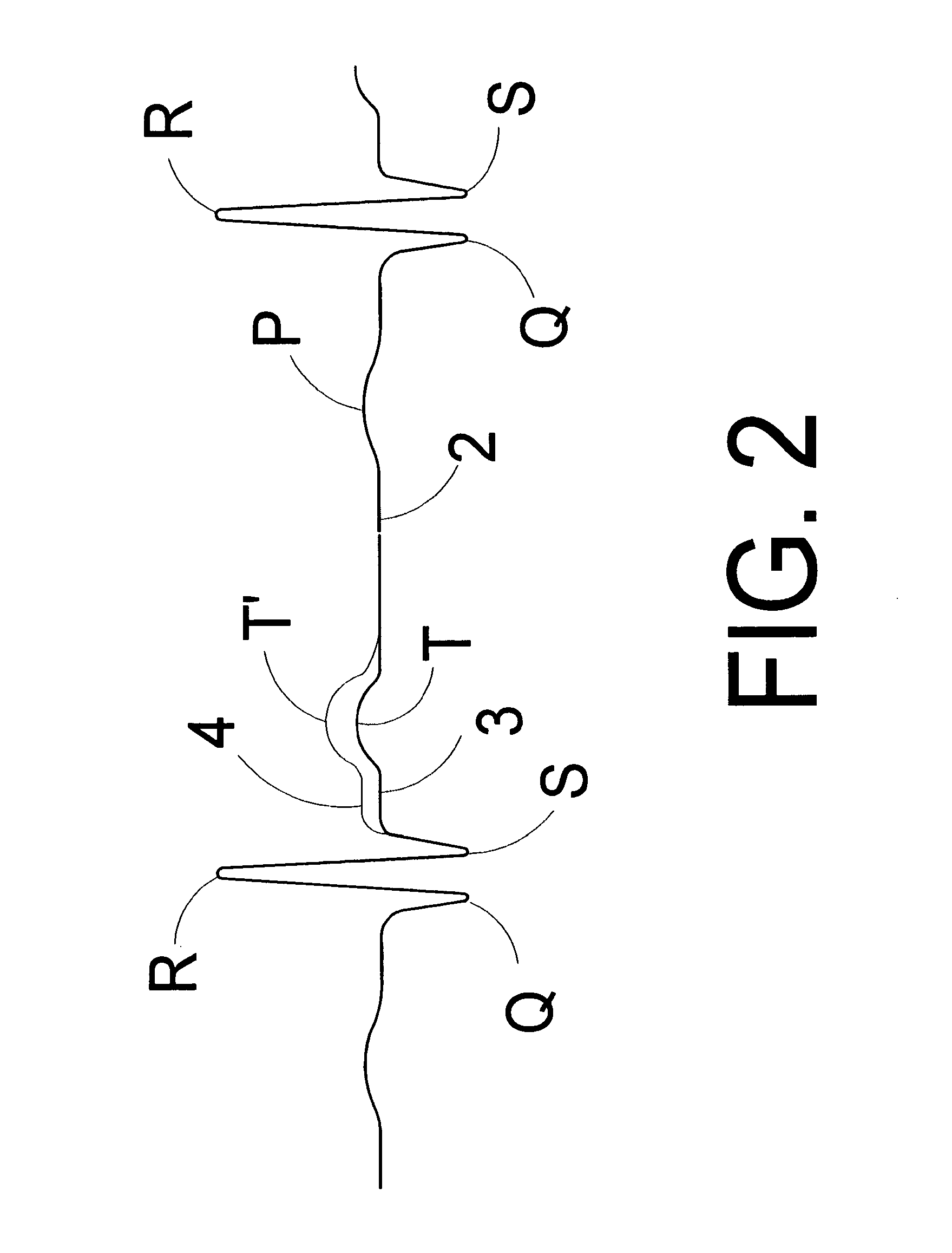System for the detection of cardiac events
a cardiac event and system technology, applied in the field of system for cardiac events detection, can solve the problems of imbalance of blood supply and demand, myocardial ischemia, common and life-threatening complication, etc., and achieve the effect of improving the ability of emergency room physicians, cost-effectively providing capability, and easy programming
- Summary
- Abstract
- Description
- Claims
- Application Information
AI Technical Summary
Benefits of technology
Problems solved by technology
Method used
Image
Examples
Embodiment Construction
[0098]FIG. 1 illustrates one embodiment of the guardian system 10 consisting of an implanted cardiosaver 5 and external equipment 7. The battery powered cardiosaver 5 contains electronic circuitry that can detect a cardiac event such as an acute myocardial infarction or arrhythmia and warn the patient when the event occurs. The cardiosaver 5 can store the patient's electrogram for later readout and can send wireless signals 53 to and receive wireless signals 54 from the external equipment 7. The functioning of the cardiosaver 5 will be explained in greater detail with the assistance of FIG. 4.
[0099] The cardiosaver 5 has two leads 12 and 15 that have multi-wire electrical conductors with surrounding insulation. The lead 12 is shown with two electrodes 13 and 14. The lead 15 has subcutaneous electrodes 16 and 17. In fact, the cardiosaver 5 could utilize as few as one lead or as many as three and each lead could have as few as one electrode or as many as eight electrodes. Furthermore...
PUM
 Login to View More
Login to View More Abstract
Description
Claims
Application Information
 Login to View More
Login to View More - R&D
- Intellectual Property
- Life Sciences
- Materials
- Tech Scout
- Unparalleled Data Quality
- Higher Quality Content
- 60% Fewer Hallucinations
Browse by: Latest US Patents, China's latest patents, Technical Efficacy Thesaurus, Application Domain, Technology Topic, Popular Technical Reports.
© 2025 PatSnap. All rights reserved.Legal|Privacy policy|Modern Slavery Act Transparency Statement|Sitemap|About US| Contact US: help@patsnap.com



